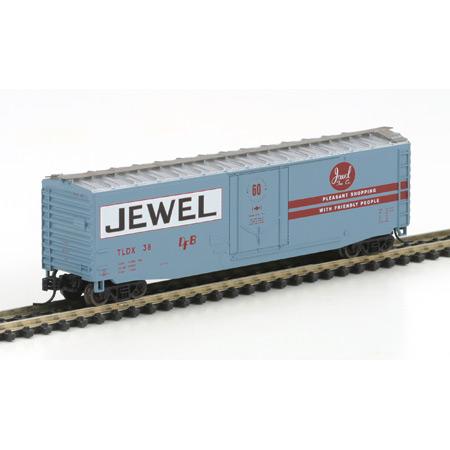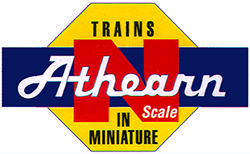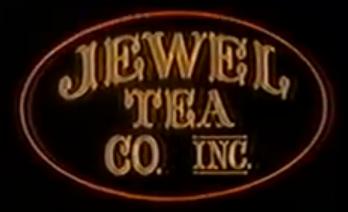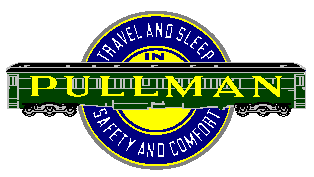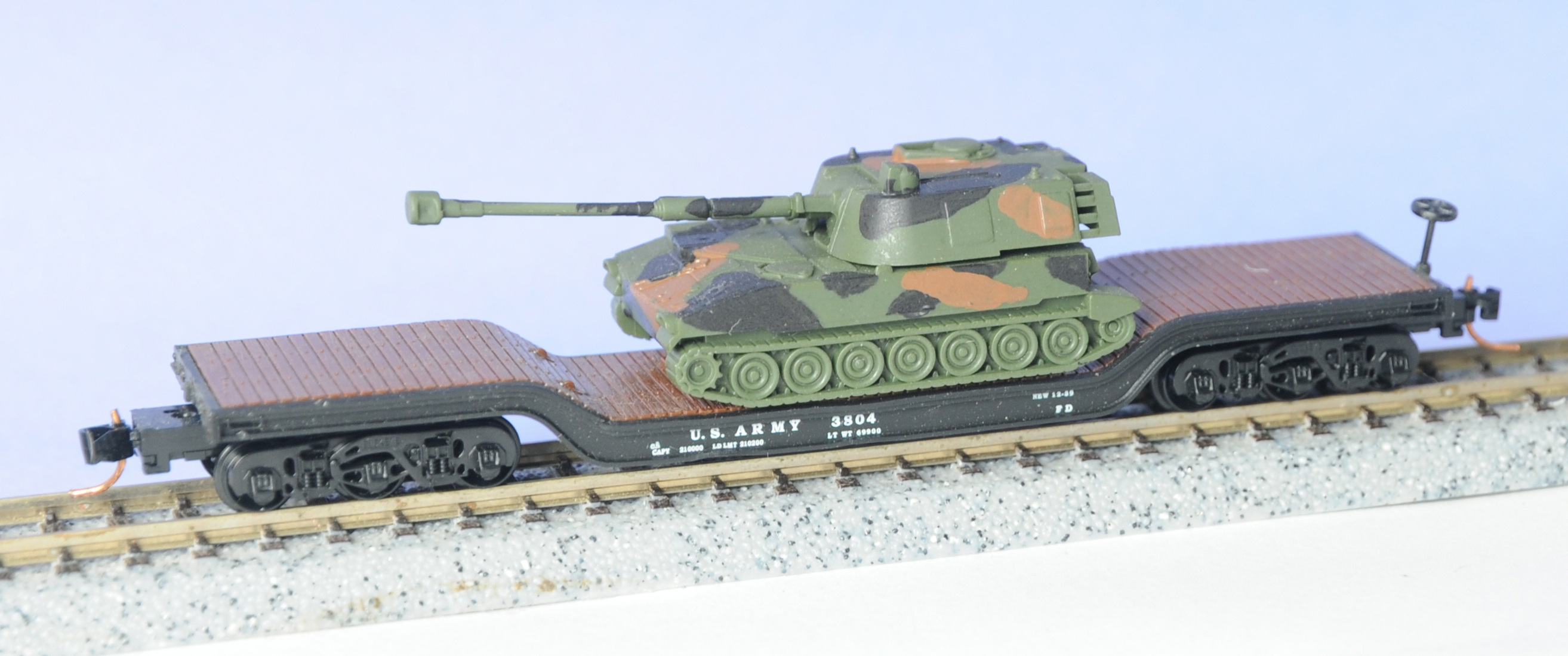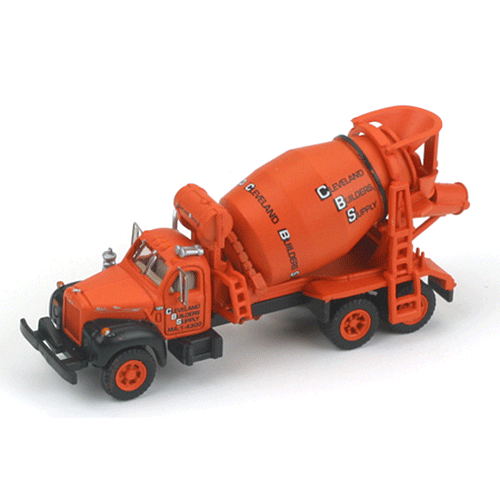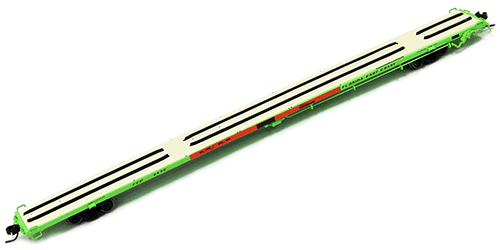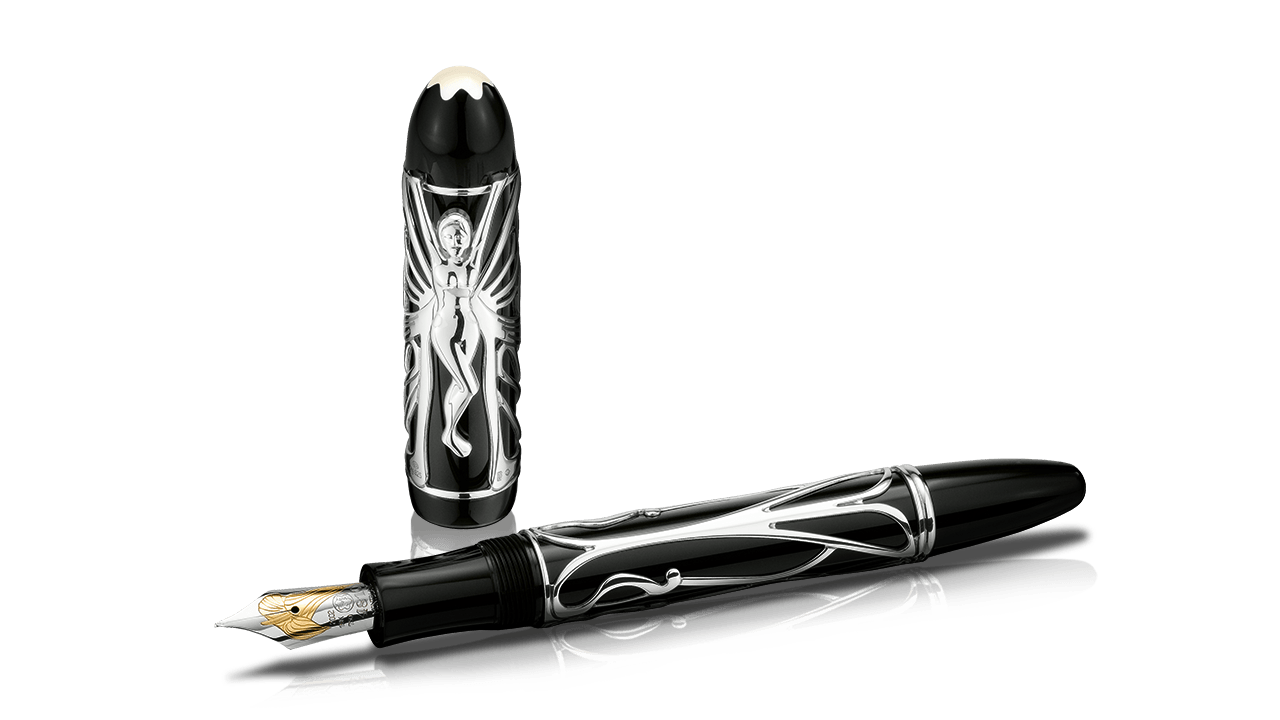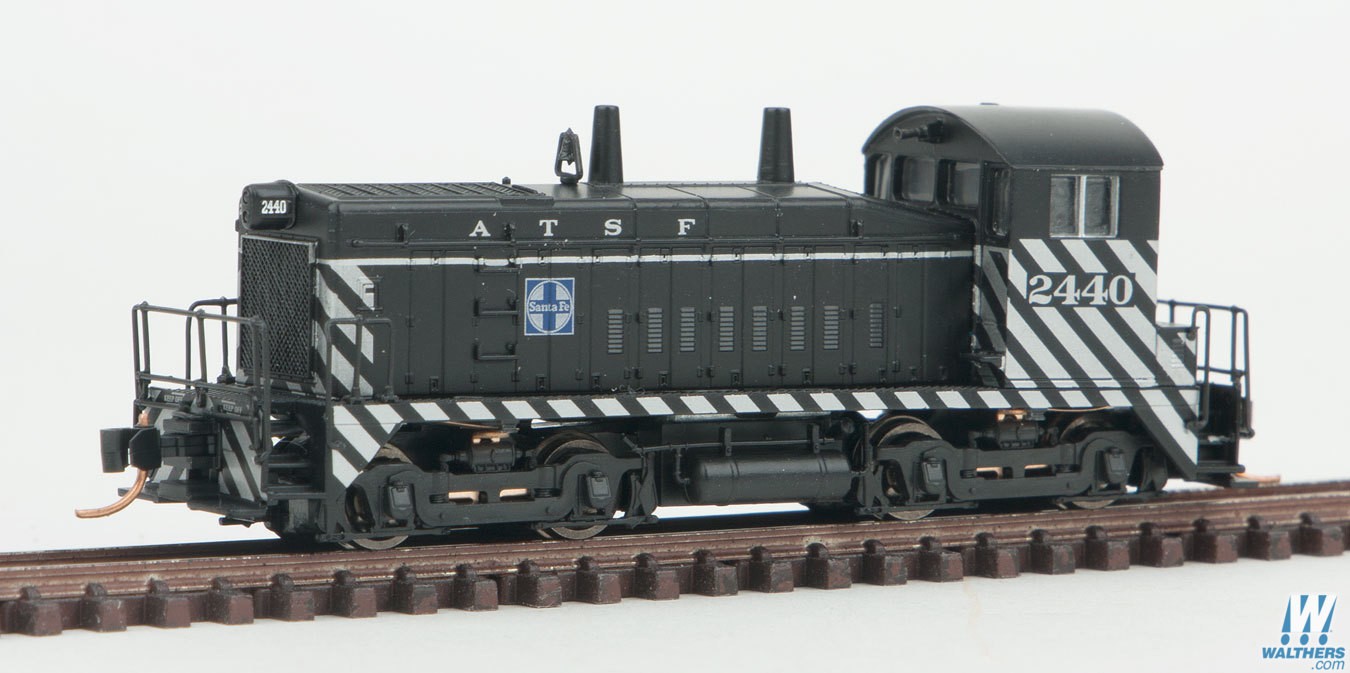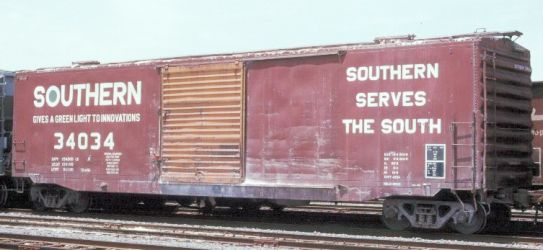Prototype History: The Pullman Standard or PS-1 design was one of the most popular and was widely used by North American railroads. These boxcars were built beginning in 1947 and share the same basic design, with certain elements such as door size, door style or roof type varying among the different railroads and production years. When production of these cars ceased in 1963, over 100,000 had been produced.
The original PS-1 measured 40 foot in length, but Pullman Standard also offered 50′ and later 60′ boxcars – also with the PS-1 designation.
The original PS-1 measured 40 foot in length, but Pullman Standard also offered 50′ and later 60′ boxcars – also with the PS-1 designation.
Road Name History: In 1899, Frank Vernon Skiff founded Jewel in Chicago, Illinois, as a door-to-door coffee delivery service. In 1902, Skiff partnered with his brother-in-law Frank P. Ross, renaming the venture the Jewel Tea Company. By 1903, they had six routes and then 12 routes in 1904 with expansion into Michigan City, Kankakee, and Kewanee. There were 850 routes by 1915.
During World War I, the company faced soaring costs for materials and production and, compounding this problem, the U.S. government commandeered a key Jewel production facility. As a result, by 1919 the company was experiencing severe financial setbacks. Within a few years, however, it returned to profitability through the leadership of new company officials, retired Commanders John M. Hancock and Maurice H. Karker, who had both gained extensive logistics experience as U.S. Navy supply officers during the war.
In 1929, the company built a new office, warehouse, and coffee roasting facility in suburban Barrington, Illinois, creating hundreds of local jobs despite the Great Depression. The Barrington location served as the headquarters and main warehouse facility for both the home delivery and food store divisions until the completion of the new warehouse and office complex at Melrose Park in 1953.
In 1949, deliveries were provided on 1876 routes in 43 states to customers mostly in small towns while customers in cities could go to 154 company owned grocery stores.
Later, the service expanded to include 350 grocery and 10,000 general merchandise items by 1981 when Jewel decided to sell its "Jewel Home Shopping Service" division to its employees and divest itself from its roots. At the time of the divesture, the division provided service to customers in mostly small towns located along 1000 routes in 42 states.The division became a 700-member owned cooperative called "J.T.'s General Store" in which each route sales persons were independent self-employed agents.
In October 1994, a group of the company's managers acquired the assets of "J.T.'s General Store" and "created J.T. Dealers Sales and Service". By 1995, "J.T. Dealer Sales and Service" was providing service to 60,000 customers along 250 routes in 35 states.https://en.wikipedia.org/wiki/Jewel_(supermarket)From Wikipedia
Brand/Importer Information: Athearn's history began in 1938, when its founder-to-be, Irvin Athearn, started an elaborate O scale layout in his mother's house. After placing an ad selling the layout, and receiving much response to it, Irv decided that selling model railroads would be a good living. He sold train products out of his mother's house through most of the 1940s. After becoming a full-time retailer in 1946, Irv opened a separate facility in Hawthorne, California in 1948, and that same year he branched into HO scale models for the first time.
Athearn acquired the Globe Models product line and improved upon it, introducing a comprehensive array of locomotive, passenger and freight car models. Improvements included all-wheel drive and electrical contact. One innovation was the "Hi-Fi" drive mechanism, employing small rubber bands to transfer motion from the motor spindle to the axles. Another was the double-ended ring magnet motor, which permitted easy connection to all-wheel-drive assemblies. Athearn was also able to incorporate flywheels into double-ended drives.
The company produced a model of the Boston & Maine P4 class Pacific steam locomotive which incorporated a cast zinc alloy base and thermoplastic resin superstructure. It had a worm drive and all power pickup was through the bipolar trucks that carried the tender. This item was discontinued after the Wilson motor was no longer available, and was not redesigned for a more technologically advanced motor.
Athearn's car fleet included shorter-than-scale interpretations of passenger cars of Southern Pacific and Atchison, Topeka & Santa Fe Railroad prototypes. The company also offered a variety of scale-length freight cars with sprung and equalized trucks. The cars could be obtained in simple kit form, or ready-to-run in windowed display boxes. The comprehensive scope of the product line contributed to the popularity of HO as a model railroad scale, due to the ready availability of items and their low cost.
Irv Athearn died in 1991. New owners took control in 1994, but continued to follow Athearn's commitment to high-quality products at reasonable prices. Athearn was bought in 2004 by Horizon Hobby. Athearn was then moved from its facility in Compton to a new facility in Carson, California. In mid-2009, all remaining US production was moved to China and warehousing moved to parent Horizon Hobby. Sales and product development was relocated to a smaller facility in Long Beach, California.
Read more on Wikipedia and Athearn website.
Athearn acquired the Globe Models product line and improved upon it, introducing a comprehensive array of locomotive, passenger and freight car models. Improvements included all-wheel drive and electrical contact. One innovation was the "Hi-Fi" drive mechanism, employing small rubber bands to transfer motion from the motor spindle to the axles. Another was the double-ended ring magnet motor, which permitted easy connection to all-wheel-drive assemblies. Athearn was also able to incorporate flywheels into double-ended drives.
The company produced a model of the Boston & Maine P4 class Pacific steam locomotive which incorporated a cast zinc alloy base and thermoplastic resin superstructure. It had a worm drive and all power pickup was through the bipolar trucks that carried the tender. This item was discontinued after the Wilson motor was no longer available, and was not redesigned for a more technologically advanced motor.
Athearn's car fleet included shorter-than-scale interpretations of passenger cars of Southern Pacific and Atchison, Topeka & Santa Fe Railroad prototypes. The company also offered a variety of scale-length freight cars with sprung and equalized trucks. The cars could be obtained in simple kit form, or ready-to-run in windowed display boxes. The comprehensive scope of the product line contributed to the popularity of HO as a model railroad scale, due to the ready availability of items and their low cost.
Irv Athearn died in 1991. New owners took control in 1994, but continued to follow Athearn's commitment to high-quality products at reasonable prices. Athearn was bought in 2004 by Horizon Hobby. Athearn was then moved from its facility in Compton to a new facility in Carson, California. In mid-2009, all remaining US production was moved to China and warehousing moved to parent Horizon Hobby. Sales and product development was relocated to a smaller facility in Long Beach, California.
Read more on Wikipedia and Athearn website.
Item created by: CNW400 on 2019-04-05 19:50:21. Last edited by gdm on 2020-07-24 07:29:21
If you see errors or missing data in this entry, please feel free to log in and edit it. Anyone with a Gmail account can log in instantly.
If you see errors or missing data in this entry, please feel free to log in and edit it. Anyone with a Gmail account can log in instantly.


